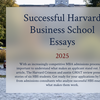Today, Harvard receives over $600 million in funding from the federal government, and that number jumps to $1.2 billion if Harvard-affiliated hospitals are included. While the government’s commitment to Harvard may not have wavered much in recent years, the U.S. is no longer the superpower it once was. China and India have become economic powerhouses as the U.S. economy has been wracked with recession and downturns.
And amid economic headwinds and a growing desire for fiscal belt-tightening in Washington, that funding may now be in danger. Several political leaders—including President Obama—have made promises that funding for research will not land on the chopping block, but that is far from certain in the current political climate. Continued instability in the markets and the threat of another recession only heighten the possibility that Harvard will face a shortfall of funding in coming years.
More broadly, a general sense of American decline—and the rise of other countries—threatens the sense of American superiority that has buttressed Harvard’s standing. But professors say that Harvard should be able to maintain its international prestige even if American power is eclipsed on the international stage and its economy weakens.
“I don’t think the University’s standing is dependent on the perpetuation of American economic hegemony,” said James T. Kloppenberg, chair of the History Department and a scholar of American history. “The persistence of Harvard’s excellence is dependent on whether we continue to attract the best and brightest, and not so much if America continues to be the economic juggernaut it has been.”
“As long as people think that they can find the best education anywhere here at Harvard, and as long as they’re willing to come to Cambridge, that position of dominance should not be too threatened,” he added.
Others say that while the support of the American government and America’s position on the international stage are important for Harvard to retain its standing, Harvard’s reputation will in large part be dependent on its “cultural capital.”
“The problem of maintaining status, something that Harvard and many leading U.S. institutions face, is huge,” said Michael T. Tworek, a graduate student in the History Department who teaches a seminar called “The University and Society.” “Harvard’s position is dependent on a combination of two factors: political support and cultural capital. These are essential in terms of allowing Harvard to keep its preeminent place in the world.”
Tworek and Kloppenberg said that as long as Harvard’s alumni and faculty continue to be innovators and leaders, American decline would not necessarily extend to Cambridge.
“Universities are best judged by the products they produce,” Tworek said.
Or to put it in economic terms: “Higher education is an export commodity, and it’s very much in demand,” Menand said. “People all around the world want to come to Harvard, because most countries don’t have the liberal education that you can get here.”
LEGACY OF REFORM
Hic in silvestribus et incultis locis angli domo profugi anno post christum natum CIC IC C XXXVI post coloniam huc deductam vi sadientiam rati ante omnia colendam scholam publice condiderunt conditam christo et ecclesiae dicaverunt.
In the dark wood above the stage in Sanders Theatre are inscribed the following words:
“Here in wooded and uncultivated places Englishmen, fugitives from home, in the year after the birth of Christ 1636 (and) after the colony was founded here, the sixth, because they thought that wisdom was to be cultivated before all else, founded a school by public enactment and when founded dedicated (it) to Christ and his Church.”
Today, Harvard bears little resemblance to the place described in these Latin lines, and Harvard’s legacy of reform and change may also help the University remain resilient if the U.S. enters a period of decline.
Read more in News
"In Harvard, But Not Of It"












